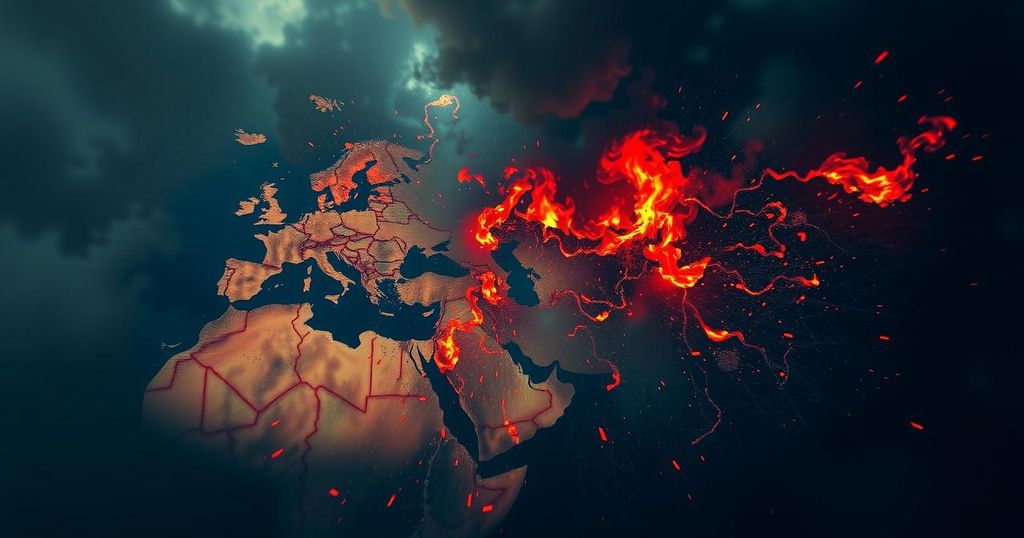Israel’s military readiness is heightened in anticipation of an Iranian response to recent attacks, with U.S. officials pursuing diplomatic efforts amid ongoing violence in Gaza and Lebanon. Recent airstrikes have resulted in civilian casualties, prompting UN condemnation of aid restrictions in Gaza, deemed critical for the population’s survival. The situation is complicated by the backdrop of the upcoming U.S. presidential election, affecting regional responses.
Current tensions in the Middle East remain high as Israel prepares for a possible Iranian retaliation following recent military actions. An Israeli military source indicated that the nation is at a heightened state of readiness, particularly aware of threats posed by Iran in light of its involvement through proxies in Gaza and Lebanon. Reports from CNN noted that U.S. officials are actively engaging in diplomatic efforts aimed at de-escalation, though doubts persist regarding the potential for a ceasefire prior to the U.S. presidential election. Meanwhile, violence continues in both Lebanon and Gaza, with Israeli airstrikes resulting in significant casualties among civilians, including the recent bombardment of Nuseirat refugee camp, which left numerous fatalities and injuries. UN officials have raised alarms about the dire humanitarian situation in Gaza, describing a ban on operations by UNRWA as a “death sentence” for many Palestinians. As Israel and Iran navigate this dangerous landscape, the international community watches closely.
This article addresses the ongoing conflict in the Middle East, particularly the mounting tensions between Israel and Iran, as well as between Israel and militant groups in Gaza and Lebanon. It highlights the complexity of these relationships and the dire humanitarian situation unfolding in Gaza, with UN officials condemning the restrictions on aid. Additionally, the article covers the diplomatic efforts spearheaded by U.S. officials trying to curtail the violence, juxtaposed with the military actions that suggest escalating hostilities. The context of the upcoming U.S. presidential election serves as a backdrop for the hesitance among leadership in the region to commit to lasting peace.
In conclusion, the Middle East remains embroiled in conflict as Israel braces for potential Iranian responses to its military actions. Ongoing airstrikes in Gaza result in civilian casualties, exacerbating the humanitarian crisis, while diplomatic attempts by U.S. officials face skepticism. The geopolitical landscape is shaped by the urgency of the U.S. presidential election, influencing the actions and decisions of key players involved in the conflict.
Original Source: www.cnn.com






